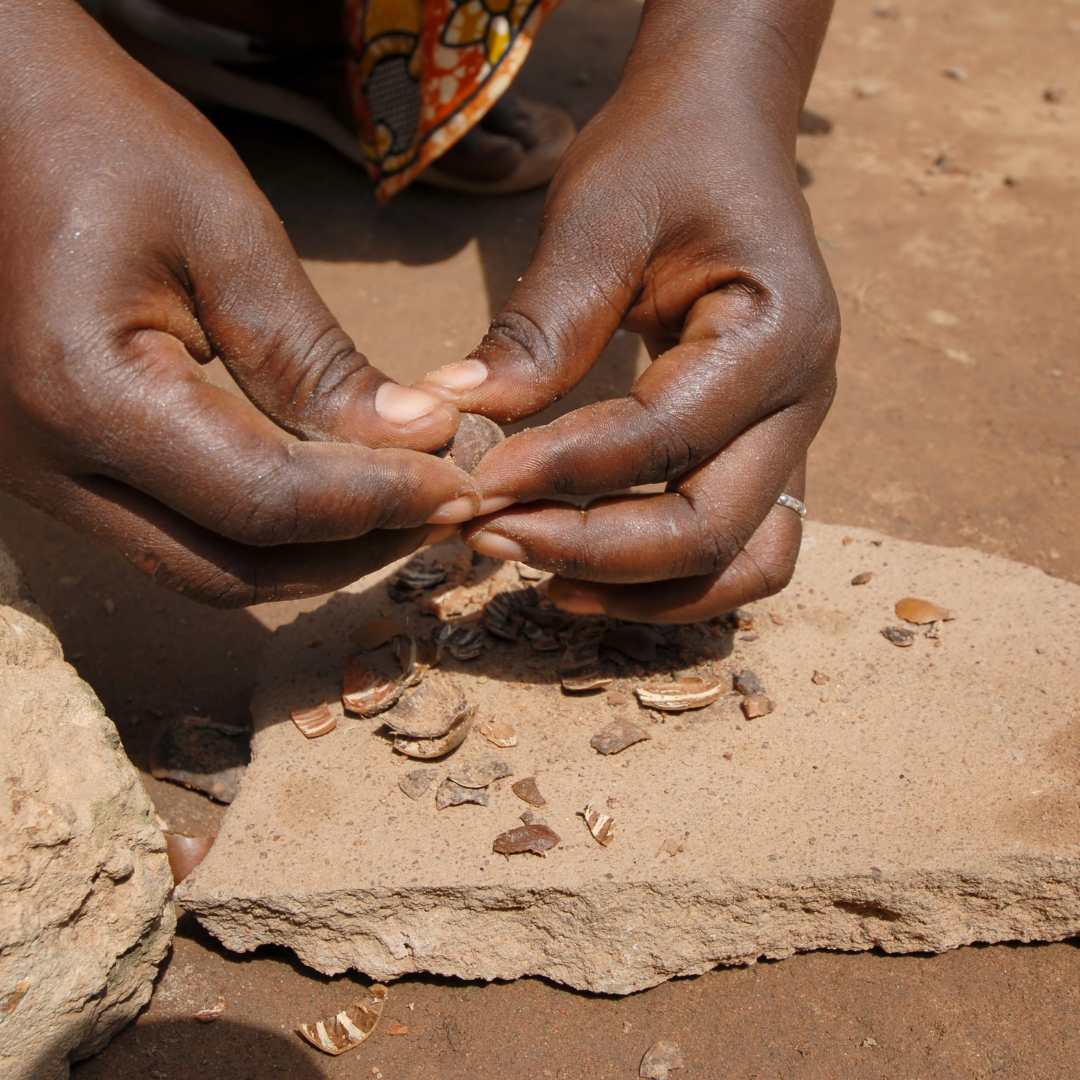Everything you need to know about fairtrade in the natural and organic beauty industry
With the growth of the natural and organic beauty market, crops like coconut, shea and argan are being used more and more by natural beauty brands because of their impressive skincare benefits. As these crops, some of which already had a fairtrade focus in the food industry, started being used more, the uptake of fairtrade certification in the beauty industry came too.

What is fairtrade?
The Fairtrade Foundation defines fairtrade as:
"a simple way to make a difference to the lives of the people who grow the things we love. We do this by making trade fair...Fairtrade is about better prices, decent working conditions, local sustainability, and fair terms of trade for farmers and workers in the developing world. By requiring companies to pay sustainable prices (which must never fall lower than the market price), Fairtrade addresses the injustices of conventional trade, which traditionally discriminates against the poorest, weakest producers. It enables them to improve their position and have more control over their lives."
Essentially, fairtrade beauty means that the ingredients going into your beauty products are traded ethically and have come from sources that ensure there's no exploitation of the people or the environment. Farmers and workers are paid a fair wage and investment can be made back into communities where the ingredients come from. It's particularly important in countries like Africa, South America and Asia, where, unlike in many Western countries, farmers and workers aren't protected by laws that give some kind of minimum wage and protective rights.
Not all ingredients can be certified as fairtrade and the Fairtrade UK certification mainly covers food ingredients that can also be used in skincare products. For the ingredients that can be certified, beauty brands have been able to be fairtrade approved with Fairtrade UK since 2009. Alternatively, brands choose to perform their own checks and fairtrade agreements with their suppliers.
About Fairtrade UK
Fairtrade UK, is the British Fairtrade certifier who help more than 1.7 million farmers and workers through their program which supports over 1700 organisations in 73 countries. Fairtrade UK is part of Fairtrade International which is a group of non-profit organisations in different countries who champion Fairtrade practices across the world by setting standards for companies and farmers, lobbying governments for fairer practices in developing countries and increasing consumer awareness of fairtrade and why it's important.
Their Fairtrade Standard means that products can be certified as Fairtrade and bear the Fairtrade logo.
What are the benefits of fairtrade beauty products?
Broadly, Fairtrade brings 3 benefits:
- There's always a fair price paid for crops – the ‘Fairtrade Minimum’ is the price set above the cost of production and is the price that farmers receive even if the market price drops below this. If the market price is higher, they'll receive the market price so should never be out of pocket
- Decent working conditions and no illegal child labour
- Additional cash that can be used for infrastructure or community projects. This is called the Fairtrade Premium
When you choose products from fair trade skincare brands you're ensuring the protection and empowerment of sustainable businesses without exploitation. This is especially important for ingredients like argan oil and shea butter which involve really labour intensive extraction methods and a lot of time goes into processing even just a small amount of the ingredient, particularly to the high standards required for the skincare industry.

What does the fairtrade standard mean for beauty products?
In the UK there are 150 beauty products with Fairtrade certification from a handful of fair trade skincare brands, like Odylique who are stocked here at Blomma Beauty and share with us what it means for a beauty brand:
"To qualify for certification all ingredients in a product that can be certified Fairtrade, must be sourced from Fairtrade farmers and producers under Fairtrade terms. For cosmetics, the actual mandatory minimum Fairtrade content is quite low – 2% in wash off products like shampoo and 5% in ‘leave on’ products. That’s really a reflection of how few suitable cosmetic ingredients are available as fair trade" Odylique
How to shop for fairtrade beauty products
First of all, get to know which ingredients are able to be certified fairtrade which are:
- Cocoa
- Coffee
- Dried Fruit
- Honey
- Juices
- Nuts, Seeds and their oils
- Spices
- Sugar
- Tea
These are mostly applicable to beauty product ingredients but there's also fresh fruit and vegetables, rice, quinoa, wine and bananas that can be certified too.
Next, check the label for certification if your product does contain those ingredients. If the ingredient is certified by Fairtrade UK, fairtrade will be written with a captial 'F'.
You'll see this logo if the whole product contains Fairtrade ingredients.

And a logo similar to the one below if the product contains both fairtrade and non-fairtrade ingredients, The logo will specify which ingredients are fairtrade.

If there's no logo, it doesn't necessarily mean that those ingredients aren't fairtrade so ask the producer or the retailer where you got the product from. They should be honest and transparent about the products and sourcing supply chain and may use a lower case 'f' for fairtrade which means they've done checks and used suppliers they are confident pay a fair price without exploitation but this just hasn't been verified by a third party certifier like Fairtrade UK.
Our fairtrade skincare brands
Odylique
Odylique have been championing fairtrade in their skincare and natural makeup range for many years. Their 3-in-1 Maca Face Mask was the first product in the UK to be certified to Fairtrade and organic standards and contains Fairtrade sugar from Paraguay. They pay the Fairtrade Premium and the sugar plantation funds the education of hundreds of schoolchildren locally. The farm itself has been able to safeguard organic farming techniques that have been passed down through the families working there. This means they don't burn the sugar cane after harvest which the community believes has helped improve biodiversity in the area.
But that's not all, their entire make up range is made using fairtrade shea butter and their organic sun cream is the first UK sunscreen to be approved by both the Fairtrade Foundation and The Soil Association. And lastly, their coconut and avocado oil are also purchased from fairly traded sources.
soapNskin
The soapNskin natural bodycare range is inspired by natural beauty rituals passed down through the generations along the silk roads so it makes total sense that founders Rabia and Samar want to ensure fairtrade practices in the regions where they source their ingredients from.
Their argan oil is unique in that it's not sourced from a supplier that pays a fair wage but also helps to support the Berber women who are harvesting and processing the argan nuts with childcare on site amongst other benefits. This way they can directly where the money she was paying for her ingredients is being spent.
Pure Argan Co
Another one of our brands who use argan oil and source it ethically and sustainably is Pure Argan Co who source their organic argan oil directly from a fairtrade cooperative to help the local communities through trade rather than aid and ensures they're paying a fair wage and a fair price for their argan oil. Working alongside the cooperative Pure Argan Co they help to support educational, environmental and agricultural initiatives that matter most to the community.
Closer to home, Pure Argan Co also donates a percentage of their sales to a number of UK based charities that focus on issues affecting women.

